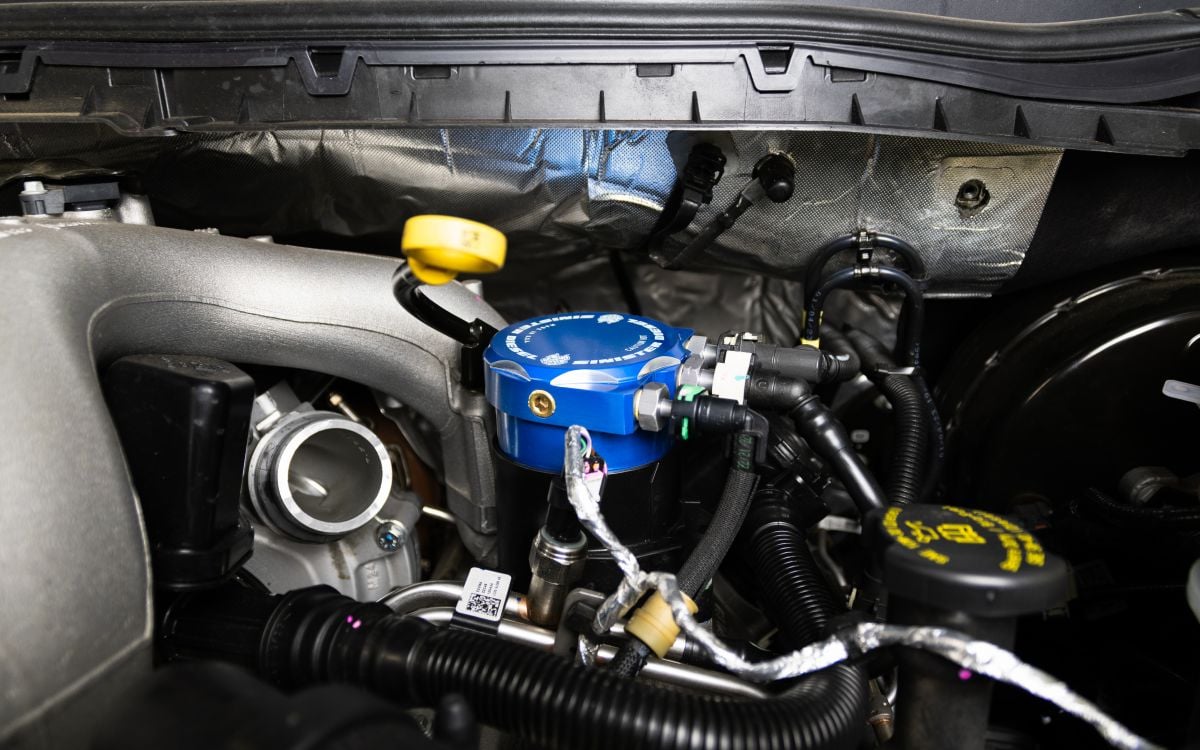6.7 Powerstroke Ford Super Duty Trucks & Potential Fire Risk from Fuel Leak?
NHTSA investigates Ford Super Duty trucks for fuel leaks; Sinister Diesel offers a durable, Fuel Filter Conversion Kit to prevent cracks and leaks.
by Hugh Jackson • June 28, 2024
This modification can save your truck from potentially catching on fire
With the recent investigation into Ford regarding a potentially fire-causing fuel leak affecting over 200,000 Ford F-250 through F-550 trucks, there has been a significant increase in attention on preventative measures to address this issue. Thankfully Sinister Diesel has you covered.
It has become increasingly evident that the OEM fuel filter housing on 6.7L Powerstroke engines tends to crack and leak over time, posing serious risks of fires or injuries. We strongly urge all 6.7L Powerstroke owners to address this issue immediately. Sinister Diesel's Fuel Filter Conversion Kit offers a reliable, leak-free solution and can be installed in under an hour with the proper tools.
The Sinister Diesel Fuel Filter Conversion Kit offers a worry-free driving experience by replacing the crack-prone plastic housing with a durable billet aluminum housing and fittings. Additionally, our kit uses a filter that performs just as well, if not better, than the OEM version while costing significantly less. In fact, the savings on filter replacements mean that the kit practically pays for itself within the first 60,000-80,000 miles.
Is there an investigation against ford for the fuel leak on the 6.7 Powerstroke?
The National Highway Traffic Safety Administration (NHTSA) has initiated a preliminary evaluation of 210,960 Ford F-250 through F-550 trucks following 27 complaints about diesel fuel leaks, including 12 reports of fires and four injuries. The issue originates from a fracture in the engine’s secondary fuel filter housing. The supplier, Allevard Sogefi USA, tested the filter to a pressure of 7 bar (101.5 psi), but Ford indicated the fuel system operates at 8.5 bar (123.3 psi).
Both Ford and the supplier made modifications starting with the 2022 model year, so current-generation trucks are not affected. The NHTSA’s Office of Defects Investigation (ODI) is assessing the severity and extent of the problem, especially given the risk of fire due to the filter’s proximity to high heat sources. Although there is no formal recall yet, Ford may issue a voluntary recall, or the ODI findings could lead to a mandated recall.
Ford is cooperating with the NHTSA to support the investigation into this issue.

